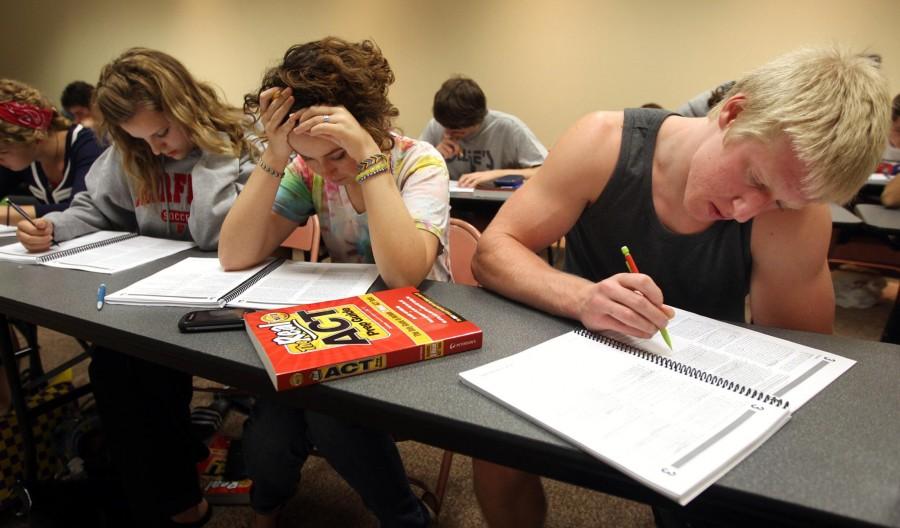Stress; not just an emotion
S[ome] T[hings] R[eally] E[xtort] S[erious] S[train]
Stress makes up a big part of life, especially with being an adult; it is almost guaranteed at one point or another. Stressers do not only come with adulthood, but actually start a lot younger. It is no secret that stress is an issue among the West Bloomfield High School (WBHS) student body. Stress is very dangerous to our health, and it can bring about not only physical health concerns, but mental ones as well. With 7 classes, clubs and after school activities, plus social affairs and any chance of free time, students’ lives are overflowing with stressers. Spectrum decided to take a poll to see how busy student life really is.
It was recorded that of the sample set of 20 students interviewed, 30% of students play one sport, 10% play two, and 0% play three or more. Added, 25% of students are in one club, 15% are in two, and 25% are in three or more. If extracurriculars were not enough, 30% of students are in one honors class, 30% of students are in two honors classes, and 15% percent of students are in three or more. Even more, 30% of students are in one AP class, 20% of students are in two, and 0% of students are in three or more. Overall, that is 28% of students having at least one stress factor from school in their life. And there are millions of other factors that can trigger stress as well; friends, family, social media… the list goes on and on.
According to WBHS English teacher Jennifer McQuillan, “ Seniors more than anyone are skipping class, committing plagiarism, and just seem burned out.” McQuillan adds that, “it is much worse now then starting five years ago”. This being McQuillan’s sixteenth year at WBHS, she has taught approximately 2800 students since August 1999. What many teachers notice that students fail to realize, is that sacrificing sleep to finish homework does not help, but much rather hurts. Short term effects include a sense of feeling overwhelmed, constantly worrying, being forgetful, procrastination, and feeling nervous and irritable. These may seem like livable symptoms, but these seemingly harmless symptoms can lead to an increase of anxiety, an increase in acne, extreme stomach aches, chronic headaches, and a change in sleeping and eating patterns.
However, all of these problems can be avoided if a few items are changed in the day-to-day schedule. A start would be to get some sleep! The average student will get 5-6 hours a night when the healthy requirement is 8-9. Secondly, ask for help! Most students are reluctant to ask for help because they feel that it is a sign of weakness in competing for college acceptance and other circumstances. But there are a lot of different opportunities to seek help; after school and lunchtime tutoring, meeting with teachers before and after school, even having your parents help would start to relieve stress. Other activities that could help include taking 15 minute increments to let the brain relax before going back to homework and/or studying. Also be sure to remain organized, having a planner, focusing on time management, and to start some activities like meditation. Also things such as exercise, eating right and putting restrictions on electronics during work can help relieve stress factors in life. If your stress level feels overwhelming, please see your WBHS counselor.
Your donation will support the student journalists of West Bloomfield High School. Your contribution will allow us to purchase equipment and cover our annual website hosting costs.










